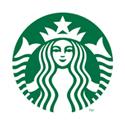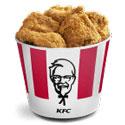Highlights
Kellogg Europe Executive Outlines Bio-Based Cereal Pouches Goal
Unilever Invests €100,000 To Solve Single-Use Plastic Sachet Problem
 Unilever has set its sights on eliminating single-use plastic sachets for laundry products, piloting a technology in which it is investing €100,000. The crowd-sourced plastic-free tablet, which uses a plant-based coating, emerged from the company’s “Rethink Plastic” Hackathon. Other ideas from the event included a subscription model for detergent in ceramic or glass bottles, and soluble sheets of detergent, or ‘Laundry on a roll’. Teams from Unilever will look at some of these other ideas. [Image Credit: © Unilever]
Unilever has set its sights on eliminating single-use plastic sachets for laundry products, piloting a technology in which it is investing €100,000. The crowd-sourced plastic-free tablet, which uses a plant-based coating, emerged from the company’s “Rethink Plastic” Hackathon. Other ideas from the event included a subscription model for detergent in ceramic or glass bottles, and soluble sheets of detergent, or ‘Laundry on a roll’. Teams from Unilever will look at some of these other ideas. [Image Credit: © Unilever]
Starbucks Says Plastic-Lined Coffee Cups Can Be Converted Into New Cups

Coffee chain Starbucks says it has converted 25 million of its coffee cups into new cups as part of a pilot scheme introduced earlier in 2018, overturning conventional wisdom that the plastic lining means they couldn’t be recycled. Mike Mueller of WestRock, the company that recycled the cups, said the company is aiming to raise awareness about how it can be achieved and scaled. Other initiatives used by Starbucks include charging a small fee to its London customers for single-use cups, and it is working on a cup that can be easily recycled and composted. Customers in most stores can expect a discount if they bring their own reusable cup.[Image Credit: © Starbucks Corporation]
KFC To Use Plastic-Free Food Buckets At Australia’s Upcoming Big Bash Cricket League

KFC, in partnership with Graphic Packaging International, is supplying half a million food buckets using sustainable materials for the Big Bash League 2018, a cricket event in Australia. The move is aligned with the Government’s commitment to ensure all packaging in the country will be 100% recyclable, reusable or compostable by 2025. The plastic-free buckets will be made at Graphic Packaging’s plant in the UK and will have a grease-resistant lining. [Image Credit: © KFC Corporation]
Aldi To Replace Polystyrene Pizza Discs With Recyclable Discs

The Aldi supermarket chain in the UK is introducing 100 percent recyclable pizza discs to replace the Polystyrene discs. Earlier this year, Aldi in the US said it would roll out How2Recycle labels across its own brand products over the next two years, and in March the company committed to using 100 percent recyclable, reusable or compostable packaging for own-label products by 2022. In the UK, it has also stopped offering customers 5p plastic bags, only 9p reusable bags made from plastic waste.[Image Credit: © Lutz Peter from Pixabay]
Ioniqa’s Process For Hard-To-Recycle PET Materials Is Gaining Attention From Large CPGs
 Coca-Cola is supporting Dutch firm Ioniqa Technologies with a loan, to help it develop the technology for producing recycled PET content from PET waste that is typically difficult to recycle. The move is a part of Coca-Cola’s target of using packaging containing 50 percent or more recycled content by 2030. The technology allows recycling of colored PET bottles, typically excluded from some recycling processes, to be used in food-grade PET. Unilever announced earlier this year its collaboration with Ioniqa.[Image Credit: © Ioniqa Technologies]
Coca-Cola is supporting Dutch firm Ioniqa Technologies with a loan, to help it develop the technology for producing recycled PET content from PET waste that is typically difficult to recycle. The move is a part of Coca-Cola’s target of using packaging containing 50 percent or more recycled content by 2030. The technology allows recycling of colored PET bottles, typically excluded from some recycling processes, to be used in food-grade PET. Unilever announced earlier this year its collaboration with Ioniqa.[Image Credit: © Ioniqa Technologies]
App-Driven SnackBot Matriculates At California University
 PepsiCo has introduced the first snack delivery robots in the U.S. that provide “great-tasting, healthier snacks and beverages” to college students. The new all-wheel drive “snackbots,” with a 20-mile range on a single charge, arrived at the University of the Pacific (Stockton, Calif.) stocked with snacks and beverages from PepsiCo’s Hello Goodness line, including Smartfood Delight, Baked Lay's, SunChips, Pure Leaf Tea, bubly, LIFEWTR, and Starbucks Cold Brew. The Hello Goodness vending platform, including the snackbot, will be available at 50,000 touchpoints by the end of the year, according to PepsiCo. Users at University of the Pacific can order food and drinks from 9 a.m. to 5 p.m., via the snackbot app, to be delivered to more than 50 designated spots across the 175-acre campus.[Image Credit: © Robby Technologies Inc]
PepsiCo has introduced the first snack delivery robots in the U.S. that provide “great-tasting, healthier snacks and beverages” to college students. The new all-wheel drive “snackbots,” with a 20-mile range on a single charge, arrived at the University of the Pacific (Stockton, Calif.) stocked with snacks and beverages from PepsiCo’s Hello Goodness line, including Smartfood Delight, Baked Lay's, SunChips, Pure Leaf Tea, bubly, LIFEWTR, and Starbucks Cold Brew. The Hello Goodness vending platform, including the snackbot, will be available at 50,000 touchpoints by the end of the year, according to PepsiCo. Users at University of the Pacific can order food and drinks from 9 a.m. to 5 p.m., via the snackbot app, to be delivered to more than 50 designated spots across the 175-acre campus.[Image Credit: © Robby Technologies Inc]
Market News
Nestlé R&D Unit Is Developing Beverages Made From Walnuts, Blueberries
Nestlé SA hopes to ride the wave of plant-based eating – one of the new so-called “food tribes” that include gluten-free and lactose-free – to a billion-dollar business. In addition to stepping briskly into vegan substitutes for meat, using soy and wheat protein, the company’s research and development center in Switzerland is exploring the potential for a liquid derived from walnuts and blueberries, with a purple hue. There’s also a blue latte featuring spirulina algae in the works. The company says about half of the protein used in its food products, including in pet food, comes from plant rather than animal sources. Nestlé Chief Technology Officer Stefan Palzer said, “Vegetarianism has never been this popular before and it’s here to stay, I’m convinced about that.”
Other
Becht Resigns As Chairman Of JAB Holding Over Disagreements About Company Strategy
JAB Holding, owner of coffee giant Keurig Dr Pepper, announced the retirement this year of chairman and co-founder Bart Becht, a few months after he stepped down from its Coty cosmetics business. Becht reportedly resigned because of disagreements with his partners about the scale of the company's dealmaking, preferring that JAB focus on improving operations for the companies that JAB already has stakes in. The company has hired three new executives with consumer products backgrounds: Fabien Simon, Ricard Rittes and Jacek Szarzynski. Anheuser Busch InBev veteran Rittes will open a new office in Brazil to head up expansion in emerging markets. JAB, the investing arm of Germany's Riemann family, was run by Becht with partners Peter Harf and Olivier Goudet. Harf will take over as chairman after Becht's departure. CEO Bob Gamgort will replace Becht as chairman of its board.
Copyright 2024 Business360, Inc.


